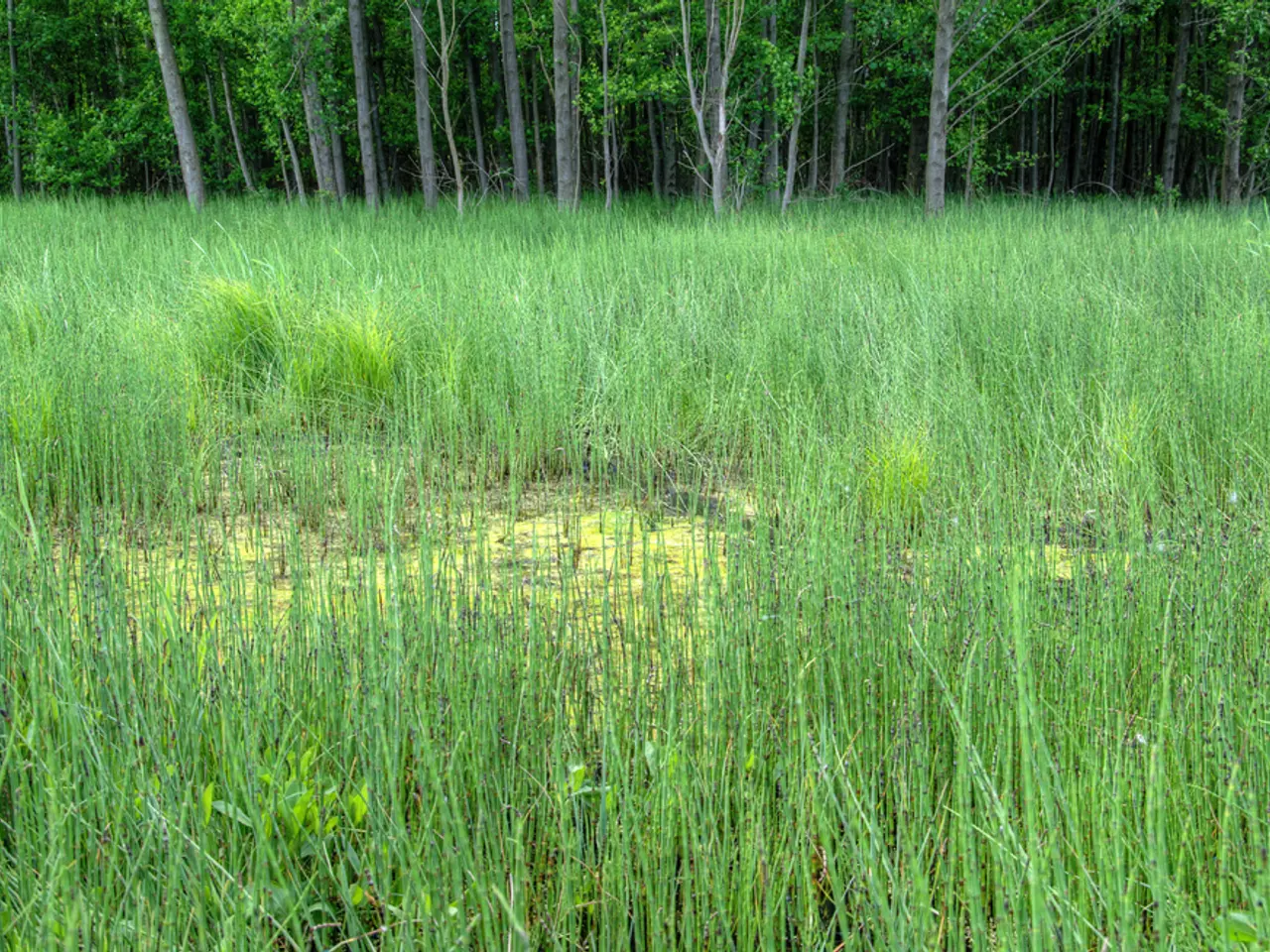High-Income, Low-Maintenance Crops: Juniper Berries Provide Stable Earnings for Upland Producers
In the heart of the Indian Himalayas, a small evergreen shrub known as the juniper plant, locally called Shukpa or Juniperus polycarpos, is transforming high-altitude agriculture. This indigenous species, with its unique qualities, is becoming a focal point for economic and ecological benefits.
Juniper berries, round and about 10-13 mm in size, are dark purple to black when ripe. They are gaining prominence not only for their distinct flavor but also for their therapeutic properties, making them a sought-after commodity in gin distilleries, wellness stores, and traditional medicine.
The rising demand for juniper berries is driving a growing interest in commercial cultivation. However, this trend is at an emerging phase, with several challenges to overcome.
One of the significant trends is ecological restoration. Juniper, particularly the Shukpa species, is valued for its ability to stabilize fragile soils, improve air quality, and create microclimates that enable other vegetation to thrive. Its resilience to extreme cold makes it a vital species for ecological restoration in harsh Himalayan terrains.
In the beverage industry, juniper berries from the Himalayas are gaining prominence, contributing to India’s craft gin market. Brands like Jamun Dry Gin and Zoya Special Batch Gin emphasize the use of 100% Indian botanicals, aligning with the "Be vocal for local" movement and adding cultural value by connecting to traditional Himalayan uses of juniper.
However, the road to large-scale commercial cultivation is fraught with challenges. The regions where juniper grows are characterized by extreme temperatures, poor soil fertility, and very low rainfall, making conventional agricultural practices difficult. Moreover, juniper trees grow slowly, and their specialized natural germination processes often rely on birds, constraining rapid commercial scaling.
Currently, most juniper berries used in the industry are wild-harvested rather than cultivated commercially, underscoring the potential but also the underdeveloped agricultural infrastructure for juniper berry farming in the Himalayas. This reliance on wild harvesting can raise sustainability and supply consistency concerns as demand from industries like distilleries increases.
Overharvesting or unmanaged cultivation may also disrupt local ecosystems and traditional practices, requiring careful balancing between commercial interests and conservation.
For Himalayan farmers, cultivating juniper berries presents a promising opportunity for a sustainable, income-generating crop. With low maintenance requirements, a strong market demand, and climate-resilience, juniper berry farming offers a unique opportunity for hill farmers to earn well while preserving their environment.
Dried juniper berries have a long shelf life and can be easily stored or sold in local markets or to herbal companies. With support from government schemes for medicinal and aromatic plants, initial costs can be reduced in juniper berry farming. Local training by Krishi Vigyan Kendras (KVKs), creation of Farmer Producer Organisations (FPOs), and small-scale distillation units for essential oil can help farmers get better value from juniper berry cultivation.
Juniper berries are valued for their therapeutic properties, such as improving digestion, acting as a diuretic, and relieving colds. In addition to their use in gin, other spirits, traditional medicine, and kitchens, juniper oil is used in perfumes, soaps, and Ayurveda.
Another lesser-known spice from Uttarakhand's Himalayas, Jhakhiya, shares similar ecological and economic potential. Juniper, with its fleshy cones and rich history, is set to play a significant role in the future of high-altitude agriculture in the Indian Himalayas.
- Science has identified the juniper plant, or Shukpa (Juniperus polycarpos), as a potential game-changer in health-and-wellness, with its therapeutic properties making it a popular commodity in gin distilleries, wellness stores, and traditional medicine.
- Fitness-and-exercise enthusiasts might find a new interest in environmental-science, as the unique qualities of the juniper plant are not only beneficial to human health but also aid in ecological restoration, stabilizing fragile soils, improving air quality, and creating microclimates.
- Climate-change mitigation efforts could find an unexpected ally in small-business ventures, as the juniper plant's resilience to extreme cold makes it a vital species for ecological restoration in harsh Himalayan terrains.
- The beverage industry is experiencing a shift with the rise of Indian craft gins, incorporating juniper berries from the Himalayas, contributing to general-news about the craft gin market and personal-growth for businesses that venture into this unique niche.
- The finance sector, particularly personal-finance and business investment, may take notice of the opportunities presented by juniper berry farming in the Himalayas, a low-maintenance, climate-resilient crop with a strong market demand and potential for income generation.
- Lifestyle changes, driven by consumers seeking sustainable and locally-sourced products, could lead to technology advancements in data-and-cloud-computing and skills-training for farmers, enabling them to scale up their operations and meet the rising demand for juniper berries.
- Education-and-self-development programs and skills-training courses could focus on the cultivation of juniper berries and other native Himalayan plants, fostering career-development opportunities in the emerging field of hill farming.
- Mental-health awareness campaigns might include juniper berries as a potential natural remedy for digestive issues, as a diuretic, and for relieving colds, making them a valuable addition to nutrition and home-and-garden practices.
- In the realm of gardening, juniper and other native Himalayan plants could play a significant role in environmental-science and lifestyle choices, promoting sustainable gardening practices and contributing to a Health-and-Wellness lifestyle.
- As demand for juniper berries continues to grow, the need for goal-setting, both personal and for small-businesses, will become increasingly important to ensure sustainable and consistent supply, while minimizing disruptions to local ecosystems and traditional practices.
- With the rise of juniper berries and other underutilized native Himalayan plants, the future of high-altitude agriculture in the Indian Himalayas could witness a shift towards sustainable business practices, focusing on ecological restoration, supporting small-business growth, and promoting personal-growth and career-development for local farmers.




